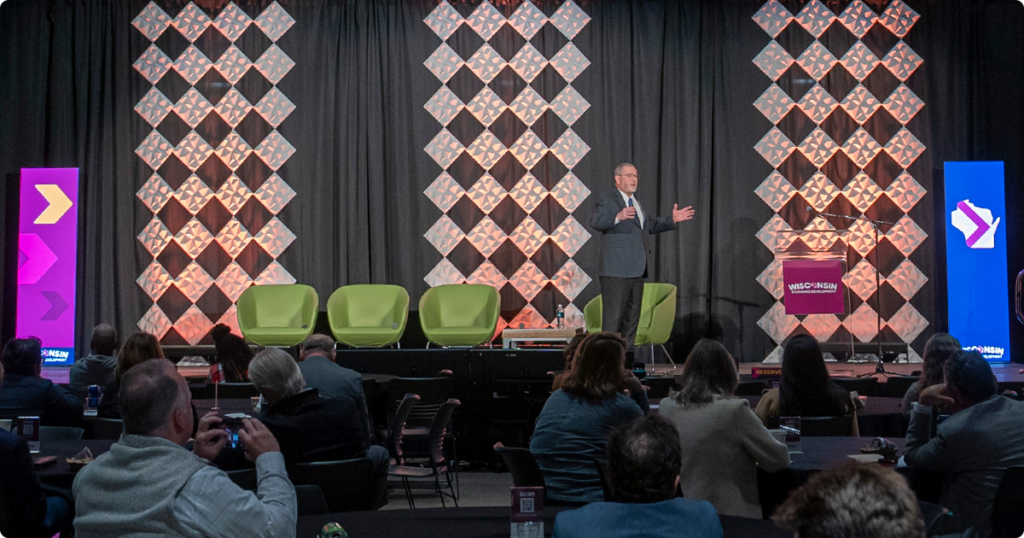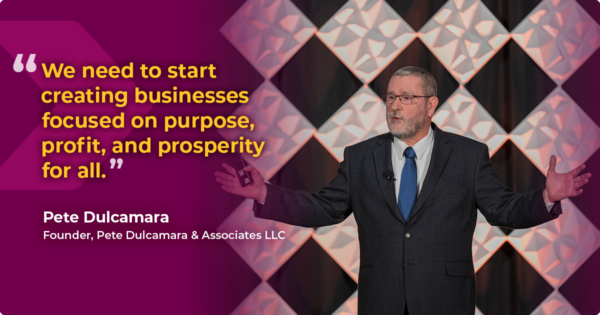 Pete Dulcamara displayed a photo taken in 1900 on New York City’s Fifth Avenue. Among the horses and buggies, there was a lone automobile. Then, he showed another photo, taken 13 years later from the same vantage point. If you squinted hard enough, you could spot a lone horse as automobiles filled the street.
Pete Dulcamara displayed a photo taken in 1900 on New York City’s Fifth Avenue. Among the horses and buggies, there was a lone automobile. Then, he showed another photo, taken 13 years later from the same vantage point. If you squinted hard enough, you could spot a lone horse as automobiles filled the street.
“That’s how fast disruption happens,” Dulcamara, founder of Pete Dulcamara & Associates, told participants at the Wisconsin Economic Summit 2024.
“Since the Civil Rights Act of 1964, we’ve seen the advent of nanotechnology, synthetic biology, quantum computers, artificial intelligence, advanced robotics, blockchain, additive manufacturing like 3D printing,” Dulcamara added. “How do we navigate in this rapidly changing world? I think we’ve got to be bold.”
In an age of exponential growth, Dulcamara—whose firm’s mission is to create businesses to improve people’s lives—said that type of boldness needs to extend to the individual, organizational, and societal levels.
“Every single one of us can be a billionaire,” he said, “if we stop defining a billionaire as somebody who accumulates a billion dollars and start defining it as someone who helps a billion people … through what I call humanity-centric innovation.”
 Dulcamara said that type of innovation occurs through a creative collision of the needs of humanity, the business models of the 21st century, and emerging technologies that make change viable and scalable.
Dulcamara said that type of innovation occurs through a creative collision of the needs of humanity, the business models of the 21st century, and emerging technologies that make change viable and scalable.
“Choose a need. Choose a problem that needs to be solved,” he said. “We need to start creating businesses focused on purpose, profit, and prosperity for all.”
Regional collaboration is crucial to tap the potential of technological growth in Wisconsin, Dulcamara said. Similar to North Carolina’s Research Triangle or the Silicon Valley, the state’s metro areas in the Fox Cities, the Milwaukee area, and the Madison area can achieve that sort of economic muscle, he said.
“If we were able to link those three areas together in an innovation triangle, I think we would be in the top 10 within the United States to drive innovation,” he said. “Then we can really drive this idea of providing every single Wisconsinite the opportunity to thrive.”
